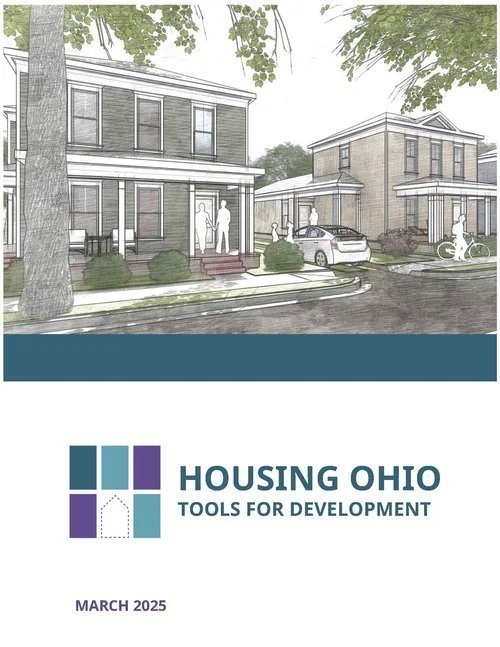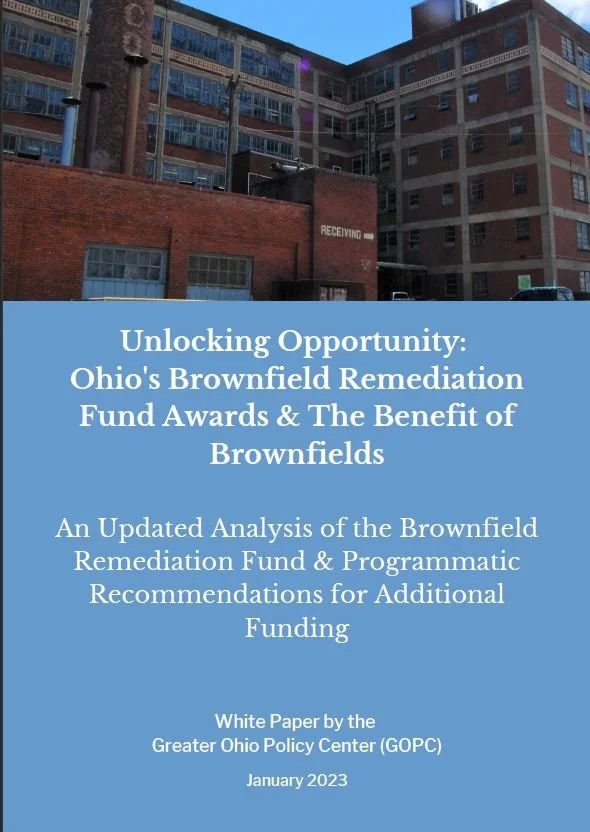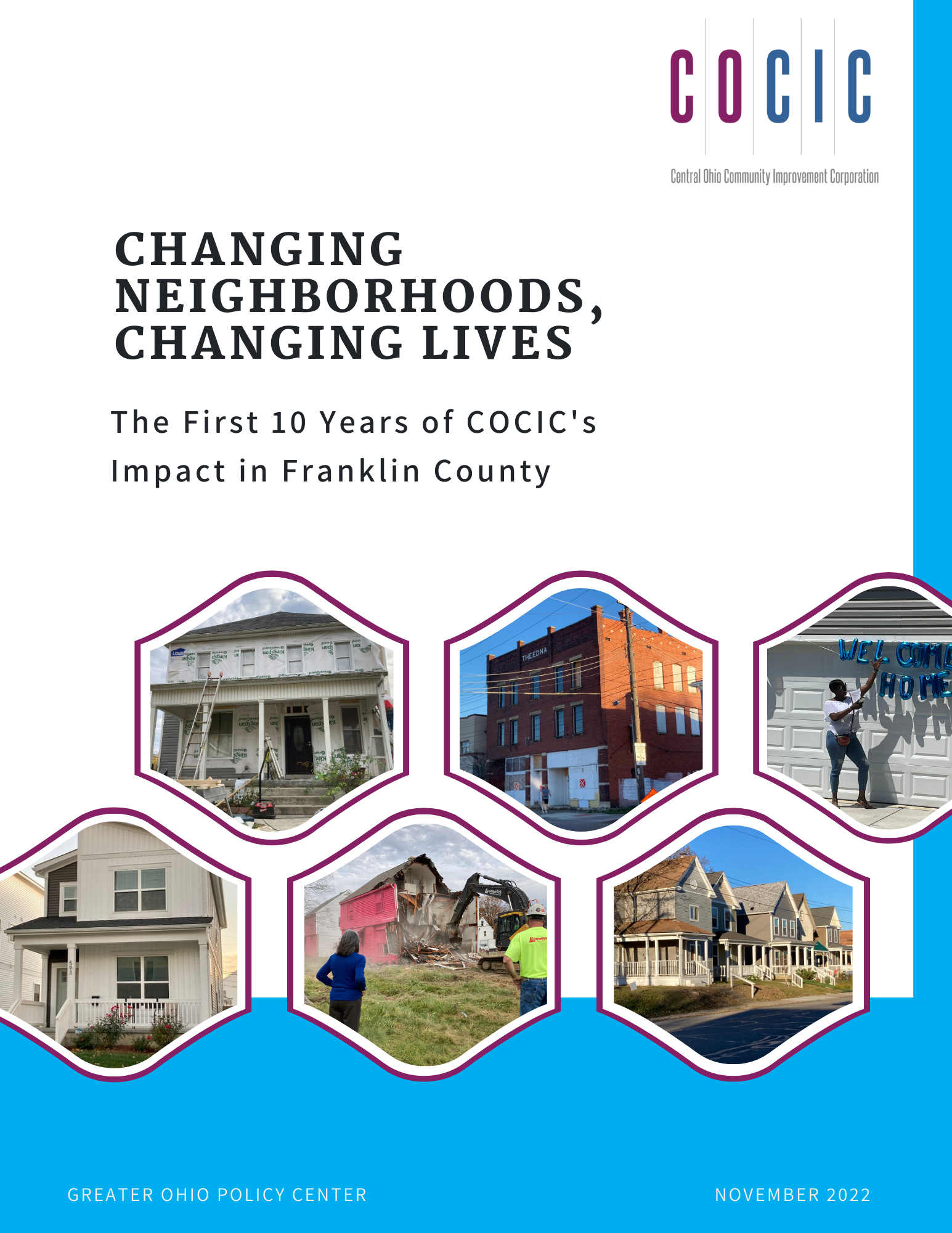The Greater Ohio Policy Center (GOPC), in partnership with the Lincoln Institute of Land Policy and its Consortium for Scenario Planning, is excited to announce the release of Exploratory Scenario Planning in Legacy Cities: A Companion to the LegacySP Toolkit. This new resource expands on the original LegacySP Toolkit, offering legacy cities proven methods and real-world insights to strengthen community planning under conditions of uncertainty.
The LegacySP Toolkit remains one of the first resources specifically designed to guide legacy cities through structured scenario planning. By employing exploratory scenario planning, communities are better equipped to anticipate and navigate potential challenges, confront unwanted futures, and chart pathways toward more resilient and desirable outcomes.
Drawing on GOPC’s direct facilitation of three scenario planning processes in Lakewood, Cleveland Heights, and Hamilton over the past three years, the Toolkit offers practical observations and strategies for success. It provides planners, local leaders, and community stakeholders with lessons learned and additional resources for adapting the toolkit to their own unique contexts.
“Exploratory scenario planning helps legacy cities face uncertainty head-on and creatively envision pathways to stronger, more equitable futures,” said Alison Goebel, Executive Director of the Greater Ohio Policy Center. “We are proud to share this companion resource, which captures the insights of Ohio communities that have engaged deeply in this process.”
The Companion Toolkit is available for free download through the Lincoln Institute of Land Policy’s website.




















